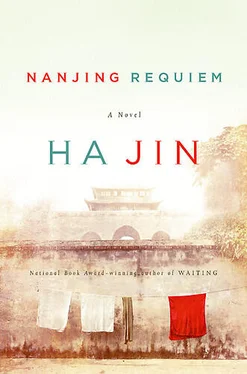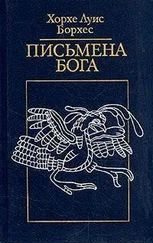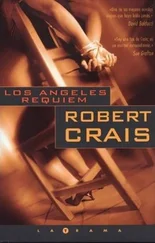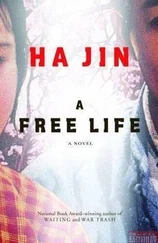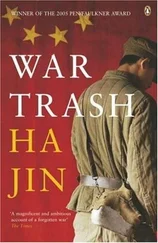He wrote:
I am miserable here but dare not complain. They told me that I would serve for only two years, but it looks like that, insofar as the war continues, they won’t let me go home. I also feel ashamed of my current role. How could I work for China’s enemy fighting my own people? But I love Mitsuko and cannot do anything that might endanger her and her family. In other words, I cannot afford to desert. Please forgive me for marrying her without your permission. I wrote you three times but never heard from you. I guess that the war must have disrupted the mail service in China and my letters went astray. Mitsuko is a good girl and absolutely loyal to me. I don’t think I could marry a better woman who unites all the positive qualities I want to find in my wife. Someday you will meet her and see if I told you the truth. Do pray for me and for the war to end soon.
Haowen’s letter devastated us. I flung myself on the bed and buried my face in a pillow, crying wretchedly. Grief came over me fit after fit. I’d always hated those Chinese who served in the Japanese army, but now my own son had become “a running dog,” “a half Eastern devil.” It was proper for him not to endanger his in-laws, but he had disgraced us and put us in potential danger. He must have been madly in love with that girl and not been able to think straight. Yet I mustn’t blame him too much, since he couldn’t possibly have foreseen that he would be forced into the service. Still, why did he have to marry her in a hurry? Something must have been wrong with him. I brooded on his life in Tokyo but couldn’t make any sense of this. His marriage seemed to have doomed him.
Yaoping tried to comfort me, saying that our son must have been isolated and lonely in Japan, that maybe he had found a first-rate daughter-in-law for us, so it was too early to tell whether this was a good fortune or a misfortune. I wouldn’t buy any of his conjectures and screamed at him, “Don’t you see that our son is ruined? He might never become a normal man again.”
That shut Yaoping up. I couldn’t eat supper that evening and lay in bed, weeping and dozing alternately. If only I could figure out a way to bring Haowen home.
The next day at work Minnie noticed my grief-stricken face and asked me what was wrong. I had recently confided to her that my son was a medical student in Tokyo. Now, since there was no one else in the office, I told her about Haowen’s plight. She was astounded and massaged her temples with both thumbs while murmuring, “This is terrible, Anling, terrible.”
“If only I could do something.”
“Are you sure you can work today? You should take a few days off.”
“That would make me more heartsick — when I’m alone, I can’t stop crying.” I averted my hot eyes.
Calming down some, I asked her not to divulge my family’s trouble to anyone. “If people know of this, I won’t be able to work here anymore,” I said, believing that the secret was a scandal that, if disclosed, might jeopardize my family.
“I’ll keep my mouth sealed,” she promised.
Minnie was the only person on campus to whom I could speak my heart, and she would also share her thoughts with me. Sometimes I could guess what she was thinking even before she let on.
IN SEPTEMBER we started another program in addition to the Homecraft School — a middle school for local girls. Despite the original plan for admitting no more than three hundred adult students, almost twice as many had enrolled in the homecraft program. The large number of poor women made the campus still seem like a refugee camp of sorts, and we depended on donations to keep them here. Among the 143 students in the middle school, only a third could afford the full fees: forty-six yuan a semester — twenty for tuition, twenty for board and lodging, and six for miscellaneous expenses. The rest of the girls were on partial or full scholarships provided through work-study arrangements.
A recent Jinling graduate named Shanna Yin had returned to the college. She was capable and had taken many classes in Jinling’s former Homecraft School, so Minnie put her in charge of that program. Donna Thayer, a young biology teacher who had come back, was now the dean of the middle school, but she didn’t know Chinese and Minnie had to help her with some of the administrative work. Minnie had also hired Alice Thompson, an English teacher, together with a dozen or so Chinese faculty, who were part-timers. Alice had taught at girls’ schools in China and also in Japan for a year, and belonged to our denomination, the Disciples of Christ. Shanna and Donna worked well together and had created a routine so the schools could run more or less on their own.
As for the lodging and board on campus, I was in charge of them. I had four kitchens built in the expanse between the Faculty House and the northwest dormitory, and these cookhouses were run by the students in the Homecraft School, some of whom had been learning how to cook professionally. The women students also took courses in tailoring, weaving, shopkeeping, fabric dyeing, and child guidance. Above all, we urged the illiterate ones among them to attend the literacy class.
One afternoon in mid-September, Miss Lou came and told us, “Yulan, the mad girl, is in town again.”
“Where is she?” Minnie asked in surprise.
“In Tianhua Orphanage.”
“Can we go see her?”
“Of course, that’s why I came to tell you.”
The orphanage was just beyond the southern border of the former Safety Zone, less than a mile away, so we set out on foot. The city seemed to be bustling with life again, though many houses still lay in ruins, grass growing on the crumbling walls and shards of terra-cotta tiles everywhere. We saw some Japanese civilians and even a couple of Koreans, but there were fewer troops than a month ago because many of them had left for the front. The previous day martial law had been declared to prevent any unofficial rallies on September 18, the seventh anniversary of the Mukden Incident, which had started the Japanese occupation of Manchuria. A balloon, which held a man and a radio set, was hovering in the air to monitor troop movements in the surrounding areas, mainly those of the guerrillas. Rumors were that our army was coming back to retake Nanjing (Chinese soldiers were said to have been spotted inside the city walls), and a lot of people believed that this was about to happen, so most of the Japanese flags disappeared from the houses and buildings that used to fly them. There was even talk of attacking the Japanese embassy and nabbing those puppet officials when the Nationalist troops marched in. Yet whenever the Chinese raised this topic, most foreigners would disabuse them of such hopes, saying that only the guerrillas posed a minor threat to the Japanese here. Unlike the other Americans, Minnie would keep mum about this and let the locals indulge in the fantasy.
We turned onto Hanzhong Road and headed east. At the doors of some restaurants stood girls and young women in blue dresses and gingham aprons, with little flowers in their hair, smiling at potential customers who passed by. This was something new. Were they not afraid of the soldiers? Why did their menfolk let them run such a risk? People had to do anything to survive, I guessed.
When we arrived at the orphanage, Monica Buckley, the American nun in charge of the place, received us. She looked exhausted, her cheeks hollow but her hazel eyes vivid and bright. I’d met her before and knew she was from Pennsylvania and part of the Episcopal mission here, formerly led by John Magee. When we asked about Yulan, Monica said there was indeed a madwoman in the back, but they were not sure of her name.
We went to the backyard, fenced but open to a street through a door fastened with a bolt and a lumpy padlock. There Yulan stood among a cluster of small boys, jabbering and puffing on a cigarette. At the sight of us she chanted, “Here come the missionary bastards.”
Читать дальше
